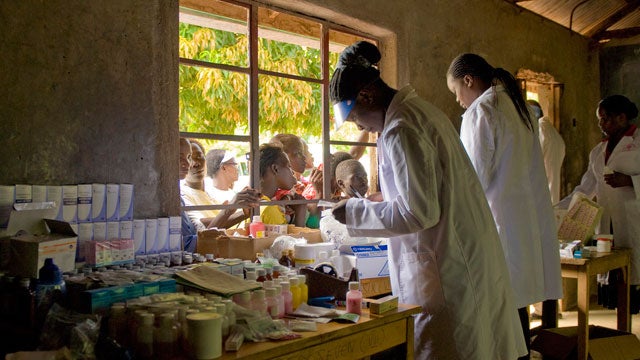There is some reason for concern. On July 29, 2013, the U.S. Food and Drug Administration—the agency’s most serious type of safety announcement—for the antimalarial drug mefloquine hydrochloride, cautioning against the drug’s psychiatric and neurological impact.
“The neurologic side effects can include dizziness, loss of balance, or ringing in the ears,” the alert warned. “The psychiatric side effects can include feeling anxious, mistrustful, depressed, or having hallucinations.”
On the whole, however, malaria medicines are much safer than they used to be. “Ninety percent of people who take these medications don’t have problems,” says Nanci Baldwin, a registered nurse and adviser for travel clinics.
But as with any medication, you should weigh the potential side effects with the severity of the disease it may prevent. Here’s what to consider:
1. Consult the latest recommendations from the Centers for Disease Control and Prevention.
The has an easy-to-navigate site that will help you determine if malaria is prevalent in the city and region where you’ll be traveling. The site also helps you identify the most effective prevention drugs for that area. For example, chloroquine can’t be used in Africa because the strain of malaria there is resistant to it.
2. Visit a travel health clinic.
Travel clinics, such as Passport Health, can help you further winnow the facts. Here medical practitioners will advise you based on your individual medical history, how long you’ll be in a country, and the season during which you’re traveling. They’ll also make a recommendation based on the activities in which you’ll be participating. For example, corporate travelers who don’t leave a convention hotel for days are less likely to need medication than those trekking through rural areas.
3. Layer your protection.
Whether you decide for or against antimalarial medicine, multiple levels of mosquito defenses are wise. Plus, malaria isn’t the only disease those tiny tormentors might be carrying.
The CDC recommends using an insect repellant with 35–50 percent DEET. Although products with 100 percent DEET are available, there’s not necessarily a greater return with a stronger product. “That strength of DEET can literally melt plastic,” Baldwin says. “And if it melts plastic, it’s certainly not good for your skin.” To maximize convenience, grab a controlled-release product that only has to be applied every 12 hours.
Before your trip, consider purchasing insect-repellant-infused clothing, or try treating your clothes with permethrin, a colorless, odorless insecticide that will stay on your duds for two to four washes.
Lastly, if your accommodations aren’t outfitted with mosquito netting, B.Y.O.N.—Bring Your Own Net— and make sure it’s secured well to prevent a scourge from creeping in.


